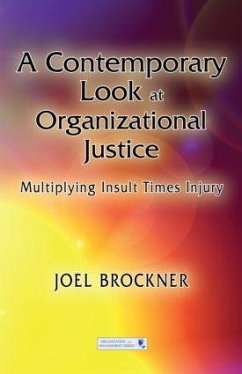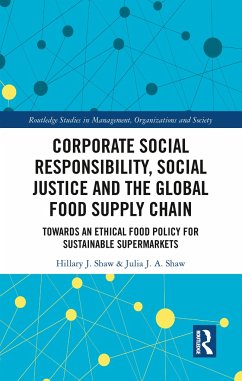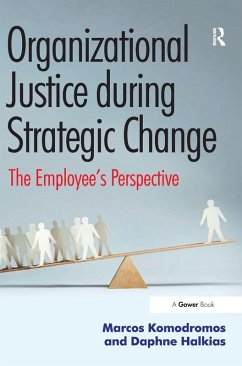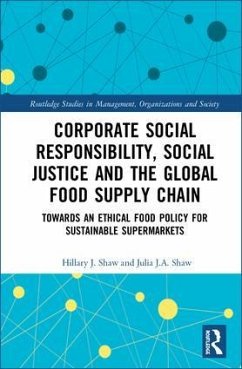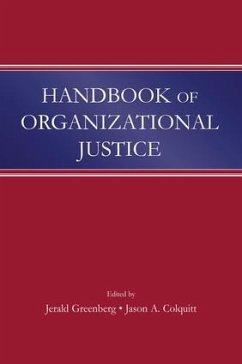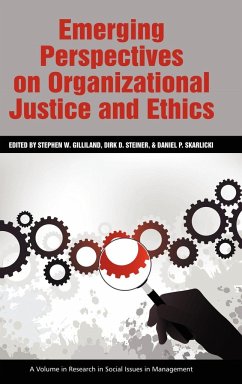
A Contemporary Look at Organizational Justice
Multiplying Insult Times Injury
Versandkostenfrei!
Versandfertig in 1-2 Wochen
69,99 €
inkl. MwSt.
Weitere Ausgaben:

PAYBACK Punkte
35 °P sammeln!
This book is for scholars with an interest in the burgeoning area of theory and research on organizational justice. The ideas it describes forge connections between the justice literature and other prominent bodies of knowledge in organizational and social psychology, including those pertaining to trust, social identity, attribution theory, regulatory focus theory and cross-cultural differences in people's beliefs and behaviors. Though intended primarily for researchers, this book is written in a very accessible way, so that informed practitioners will gain considerable value from it.





